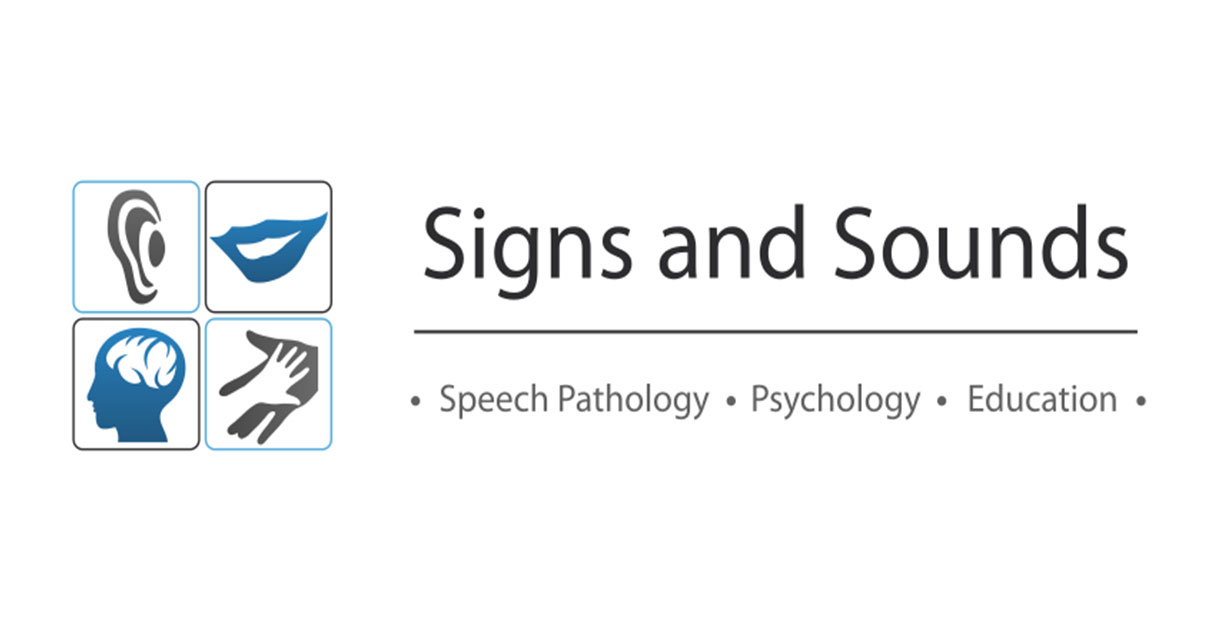Signs and Sounds
Australia, Sydney
We provide speech pathology, speech therapy and education support services for toddlers, children, young people and adults within the Marrickville and surrounding Inner West Sydney area.

Main Services:
Speech Therapy , Speech Pathology , Augmentative or Alternative Communication , Feeding Specialist , Speaking Difficulties

We provide speech pathology, speech therapy and education support services for toddlers, children, young people and adults within the Marrickville and surrounding Inner West Sydney area.
Speech is all about sounds – the way we think about them and the way we make them with our mouth.
Speech skills develop in people from birth. They include being able to make more and more sounds with the mouth, babbling (which can sometimes sound like children are talking in their own language), and saying the correct sounds in words (like saying ‘car’ instead of ‘tar’). They help to make us clear and easy to understand when we are talking to each other.
Children who have speech difficulties may also be at-risk for social and literacy difficulties.
Augmentative or Alternative Communication (or AAC) is the term used to describe various methods of communication that can ‘add-on’ to or replace speech to get around difficulties with communicating.
AAC includes systems such as pictures, gestures and pointing, as well as more complex ones involving powerful computer technology.Some kinds of AAC are actually part of everyone’s communication, like waving goodbye, giving a ‘thumbs up’ instead of speaking, pointing to a picture or gesturing while travelling in a foreign country. However, some people have to rely on AAC most of the time.
Eating and drinking, or feeding skills, are learned behaviours and not instinctual as many people believe.
Eating and drinking are complex skills that involve integration of all organs, muscles and senses, in addition to learning ability, development, nutritional status and the environment. Just as children learn to eat, they can also be taught to not eat – but how does this learning take place?
Children and young people with eating and drinking (or feeding) difficulties can make mealtimes stressful for themselves and their families. They can sometimes be called ‘fussy eaters’ or ‘problem feeders’.
Communication is an essential part of everyday adult life.
Communicating in daily activities at home, work and in social environments can be a challenge for adults who have difficulty with speaking, reading, writing and understanding language.
Adults with speaking difficulties might stutter, have trouble saying certain sounds correctly or find it hard to think of and get the right words out. These can result in adults feeling anxious about speaking and can contribute to avoiding certain situations such as talking over the phone.
Adults with difficulties understanding spoken language often find it hard to organise and cope with the complexity of language that other adults use. They might not recognise sarcasm or humour and following and taking part in conversations with family, friends and colleagues can be very difficult.
Adults also use reading and writing skills across their everyday life through mailing, phone messaging, emailing, completing forms or university assignments and work reports. Reading and writing difficulties as an adult can make these activities feel like they need a lot of effort which can become very easily frustrating.
Communication difficulties as an adult may also have an impact on emotional and mental well-being



